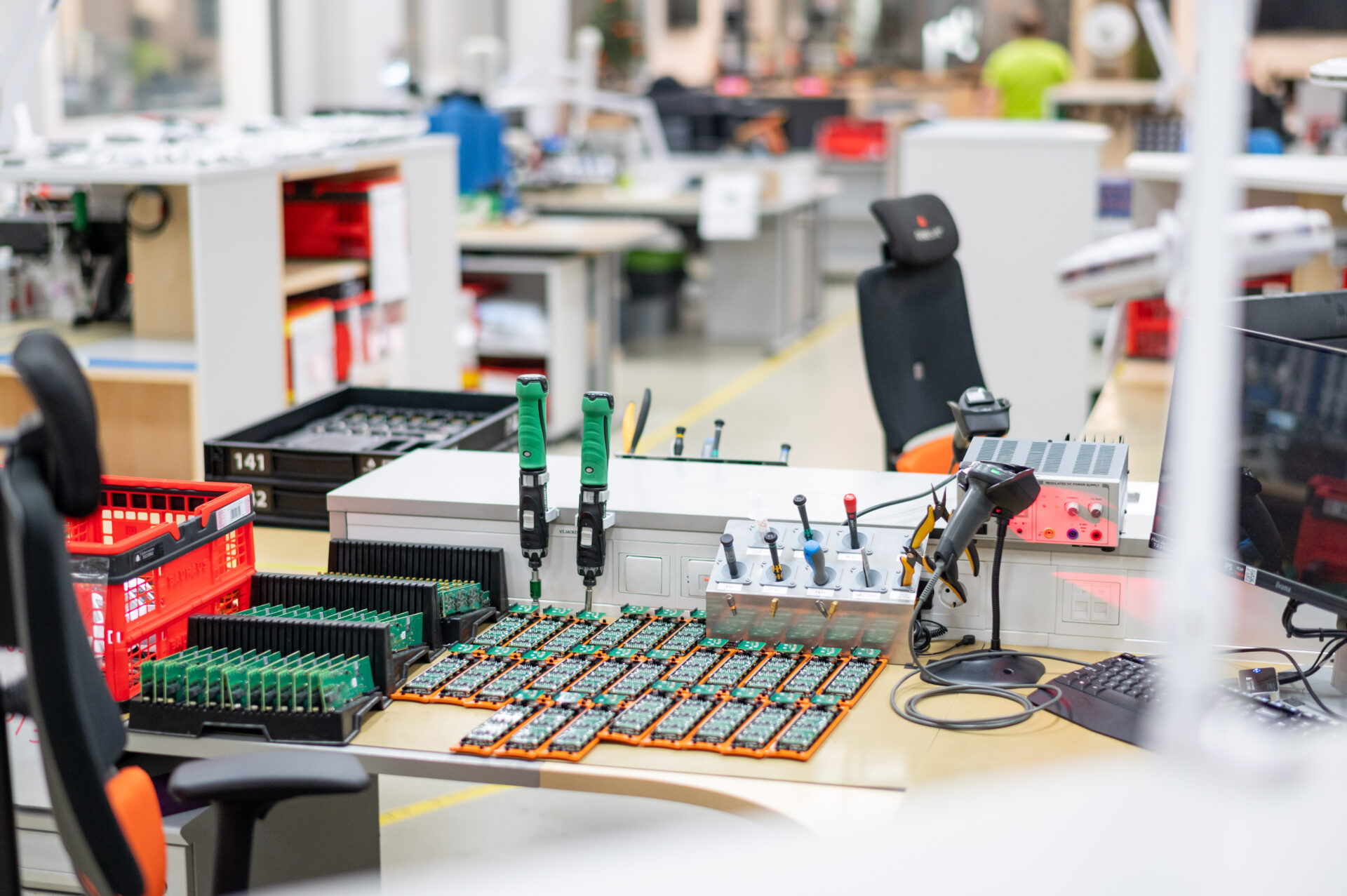EU Court of Auditors: Europe must produce more microchips

Brussels – The EU is unlikely to achieve its goal of having a 20 percent share of the global market for microchips by 2030. This is stated in a report published on Monday by the European Court of Auditors. The EU Chip Act of 2022 has given new momentum to the European microchip industry, but insufficient investments from the EU Commission, access to raw materials, high energy costs, and geopolitical tensions continue to hinder the sector, according to the report.
Microchips are small but very powerful electronic components used in many electronic devices. They play a central role in everyday life. The global shortage during the Corona pandemic has made it clear, according to the ECA report, how important they are for the economy. In its strategy for the digital decade, the EU Commission has set the goal for the EU to achieve a value share of 20 percent of the global production of cutting-edge and sustainable microchips by 2030, in order to be less dependent on other producers.
European Court of Auditors: “Microchips are everywhere”
“Nothing works without microchips, they are everywhere,” said Annemie Turtelboom, the EU Court of Auditors member responsible for the report, at the press conference on the report. She calls for a “reality check” of the strategy: “We are competing in a global race from the back.” The development in the sector is rapid, and there is intense geopolitical competition. Competitors like the USA or China “are not sitting still, they are accelerating their production,” warns Turtelboom.
Global tariffs and export bans could also affect semiconductor production and availability: “One reason for the Chip Act is to be less dependent on other continents,” said the former Belgian politician. If Europe wants to be more independent, and with a target of 20 percent, the current own forecast is only 11 percent, “that is of course concerning.” Concrete impacts of the tariffs threatened by US President Donald Trump have not yet been considered in this report.
Austria also uses EU funds
Austria was not among the three EU countries specifically examined for this report. However, some projects examined in a sample also involved Austrian partners. According to the ECA, microchip companies in Austria are using the framework provided by the EU to promote further investments. Austria is also a partner in the EU’s joint chip undertaking in Brussels (“Chips Joint Undertaking”). This promotes the development of innovative next-generation semiconductor technologies.
The EU Commission is only responsible for 5 percent (4.5 billion euros) of the funds planned in the Chip Act by 2030, which amount to around 86 billion euros, the Court of Auditors criticizes. The rest must come from EU countries and industry. In comparison, the world’s leading chip manufacturers have mobilized 405 billion euros in investments in just three years (2020 to 2023). The EU Commission has no mandate to coordinate national investments at the EU level, the report further criticizes. Furthermore, the Chip Act lacks clarity in target setting and monitoring.
Court of Auditors calls for reality check
The auditors therefore recommend that the EU Commission take necessary corrective measures after a reality check and conduct a systematic review of the goals and possible obstacles of the Chip Act. In addition, the next semiconductor strategy should be developed in close cooperation with the member states and industry.
According to the report, several other key factors influence the EU’s competitiveness in this area and the chances of successful implementation of the Chip Act. These include dependence on raw material imports, high energy costs, geopolitical tensions, and a shortage of skilled workers. Additionally, the microchip industry in the EU consists of a few large companies, leading to a concentration of resources. The cancellation, delay, or failure of a single project could therefore have significant impacts on the entire sector. (28.04.2025)














































